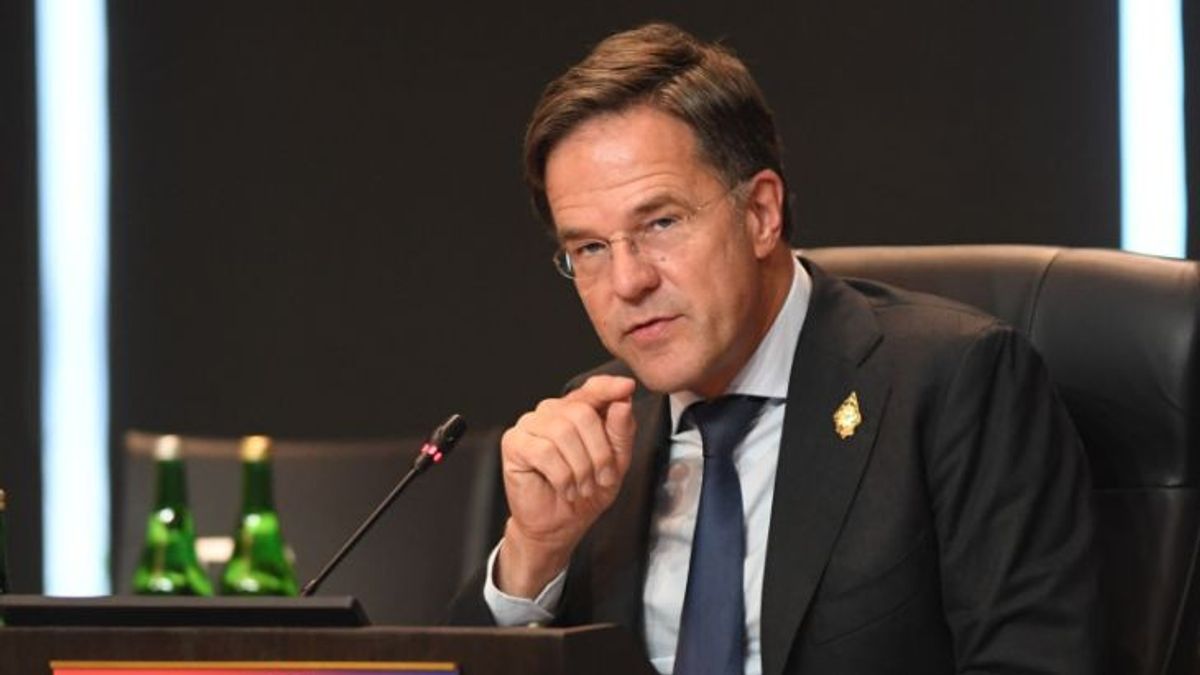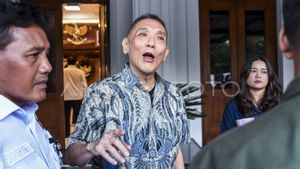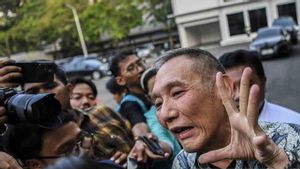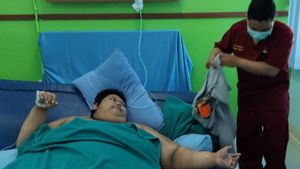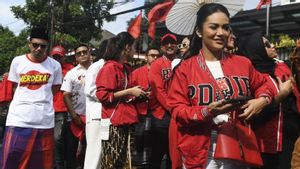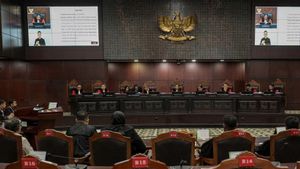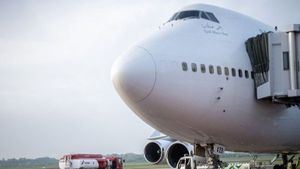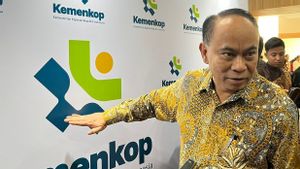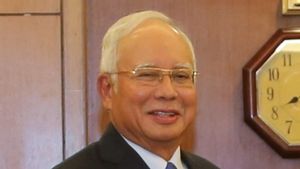JAKARTA De facto, Indonesian independence has been counted since Soekarno read the text of the proclamation on August 17, 1945 on Jalan Pegangsaan Timur No.56, East Jakarta. Soekarno loudly said, 'We are the Indonesian people hereby declare Indonesian Independence...'
Meanwhile, on a de jure basis, Indonesian Independence falls on August 18, 1945 after the legislative body is formed, the president and vice president have been elected, and the 1945 Constitution is passed.
However, in the eyes of the international sovereignty of Indonesia has not been recognized. The Netherlands alone as a country that colonizes Indonesia only recognized the sovereignty of the Republic of Indonesia on December 27, 1949. If it were two years after Egypt, Syria, Lebanon, the Vatican, Saudi Arabia, and a number of other countries.
In fact, the Netherlands insisted on not wanting to change its views. Recognition of Indonesia's sovereignty still refers to the results of the Round Table Conference on November 2, 1949.
Conditions then collapsed in the 2000s decade. One day before the 60th anniversary of the proclamation of Indonesian independence, Dutch Foreign Minister Bernard Rudolf Bot when traveling to the country broke history by stating that he accepted the fact that the day of Indonesian Independence fell on August 17, 1945.
The statement was reiterated by the Dutch King Willem-Alexander in 2020 even though it only has political and moral meaning.
Meanwhile, legality of new recognition appeared during a discussion in the Dutch Parliament on the 1945-1950 decolonialization study on June 14. The Prime Minister of the Netherlands, Mark Rutte, officially acknowledged that Indonesian Independence falls on August 17, 1945.
"We have fully acknowledged 17 August zoner voorbehaud (without any doubt). I will still find a way out with the president (Indonesia, Joko Widodo) to find the best way to be accepted by both parties," said PM Rutte as reported by Historia in an article entitled 'Finally, the Netherlands Recognizes Indonesia's Independence on August 17, 1945' on June 14, 2023.
Even so, Rutte did not want to mention what the Dutch did afterward or in Indonesian history called the war on independence as a war crime. Although the results of research entitled 'Freedom, Decolonization, Violence, and War in Indonesia, 1945-1950' confirmed this fact.
Rutte called it an extreme violence that must be morally recognized, but not juridically. He apologized on behalf of the Dutch government to Indonesia and all parties in Amsterdam who were harmed by the war.
Historian Total Triyana assessed that Rutte's statement, which seemed to avoid legal consequences of Dutch actions during his aggression in 1945-1949, was not essentially different from previous statements from Dutch officials.
In fact, from this confession, the Dutch should also indirectly admit that what they did after 1945 was an invasion of a country that was clearly independent.
Contrary to the principles in the 1941 Atlantic Charter which provides flexibility to the people of an area to determine their own destiny. As well as, violating the UN Charter on Human Rights set on December 10, 1948 or nine days before the Netherlands launched its second aggression.
"Indeed, this happened before the Geneva Convention, but if you refer to the 1941 Atlantic Charter and the United Nations Charter on human rights, expansion of the region through aggression is not justified,"agung told VOI on June 16, 2023.
Remy Limpach's dissertation titled De brandende campaigns van Generaal Spoor in 2016, according to the Director of the Dutch Institute of Military History Prof. Dr. Ben Schoenmaker, has caused a stir in the Netherlands. His research resulted in a clear and controversial link that the Dutch soldiers were structurally guilty of various forms of extreme violence during the Indonesian independence war.
Although Limpach also stated that the majority of Dutch soldiers acted with clean hands' while they lived in Indonesia, he argued it was no longer possible to maintain the notion that Dutch troops in their battle against the Republic of Indonesia were only sporadically making that mistake.
Ben Schoenmaker wrote that in a complete book "Dutch Extreme Violence in Indonesia: Indonesia's 1945-1949 Independence War"
The veterans of 'Indies War' who have been highly respected in the Netherlands and the number is getting less and less hit. They, said the professor of history at Gadjah Mada University, Prof. Dr. Bambang Purwanto is still in the same book, suddenly feeling completely accused of being a war criminal who commits violence with awareness and planning.
Moreover, if you know that the Netherlands is a nation that has a self-image as a champion in upholding human rights and law.
As a result, veteran relatives began to worry about making them go on adventures, both individually and in groups to research actual events, both through government archives and other sources in the Netherlands and in Indonesia.
Young people who have never been taught about Dutch violence in Indonesia while studying history at school also do not want to be left behind. They formed various communities to find out what violence actually happened at that time.
This condition ultimately prompted the Dutch government to be willing to finance research entitled Independence, Decolonization, Violence, and War in Indonesia, 1945-1950.
According to Bambang, there are at least four things that are the basis. First. The issue of integrity and self-esteem as a nation. Second, to prove that violence can be done by anyone, including the Netherlands.
Third, political contestation in the Netherlands. Fourth, the Dutch desire to immediately escape the burden of history with Indonesia, which has been carrying it for a long time.
Research conducted by the Kingdom of the Netherlands for the Studies of Southeast Asia and the Caribbean (KITLV), the Dutch Institute for Military History (NIMH), and the Dutch Institute for the Study of War, Holocaust, and Genocide (NIOD). Also, collaborating with Indonesian researchers from Gadjah Mada University. Starting in February 2017 and the results published in February 2022.
The results, as reported by ind45-50.org, the war of Indonesian Independence not only resulted in infinite injuries and deaths but also victims of physical violence outside of war in large quantities, such as torture, rape, inhumane detention, to other forms of intimidation such as burning villages and destroying food supplies.
It is estimated that more than 100 thousand people were killed. In the second Dutch Military Aggression in 1948 alone, 46 thousand Indonesian fighters were killed. On the other hand, the number of deaths on the Dutch side can be calculated fairly and accurately, starting from the number of soldiers killed: 5,300 died, including a number of Indonesians who were on the Dutch side. Approximately half of them died in the war, while others died of illness and accidents.
The study concluded that the war atrocities carried out by the Dutch were the result of the support of various elements of the country. They say that extreme violence is not only the responsibility of the military, but government actors.
"This research program has shown that actors on the Dutch side -politicals, soldiers, public servants, judges, and others show collective willingness to systematically allow, justify, and allow extreme violence not to be tried in order to force their intentions to opponents and win war," he said. from research.
另请阅读:
The results of this study have finally become an affirmation. There was a discussion and debate in the public sphere, including in the Dutch Parliament on June 14 until Rutte gave his official recognition of Indonesia's sovereignty.
Of course, according tomen, Dutch recognition is an important momentum for knitting more intimate cooperation by prioritizing the principles of trust and equality.
"After almost 78 years have passed, I welcome the recognition of Indonesian Independence on August 17, 1945 which was conveyed by Mark Rutte," he added.
President Joko Widodo (Jokowi) also welcomed the confession. However, he did not want to respond too far. Because, according to him, the confession had other impacts.
"We'll see, I'll ask for input from the Foreign Minister first because the impact is everywhere," said Jokowi in his statement on June 15, 2023.
The English, Chinese, Japanese, Arabic, and French versions are automatically generated by the AI. So there may still be inaccuracies in translating, please always see Indonesian as our main language. (system supported by DigitalSiber.id)
